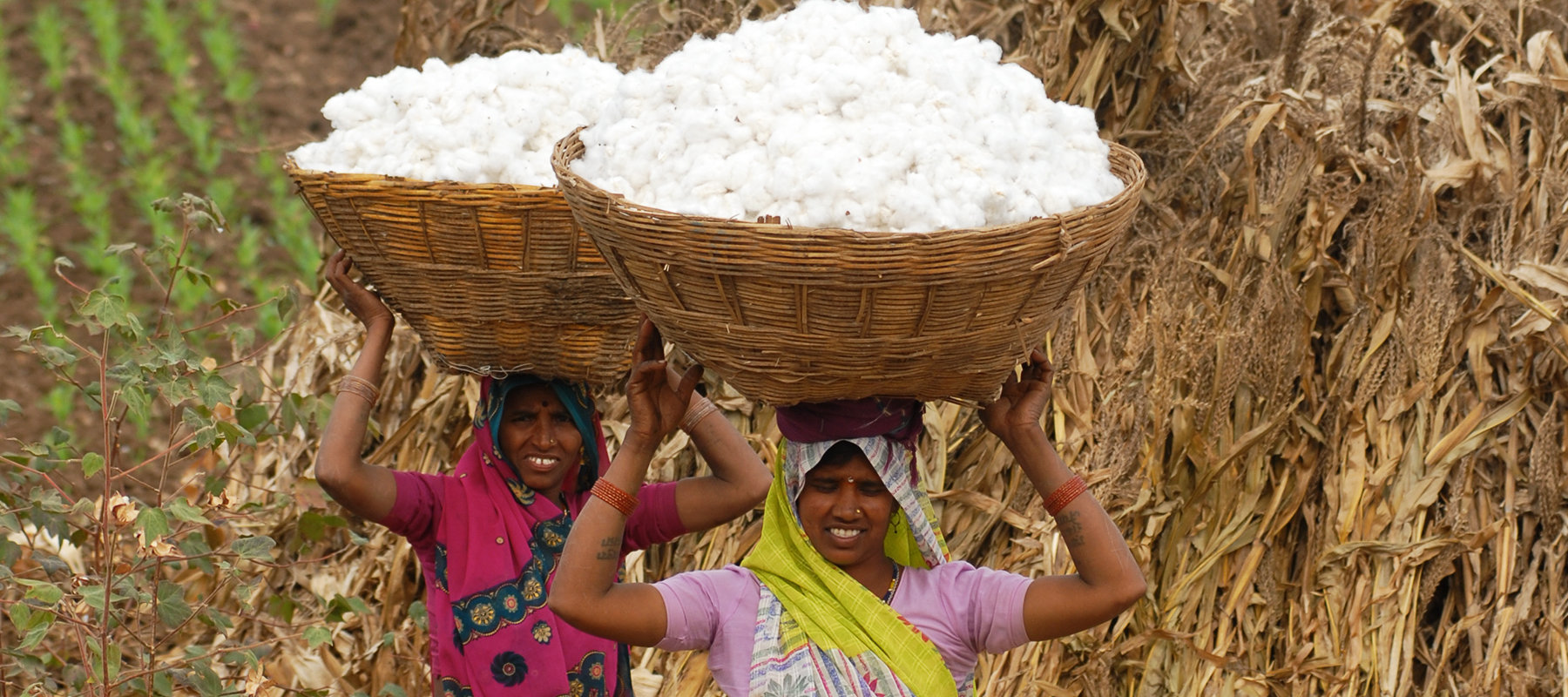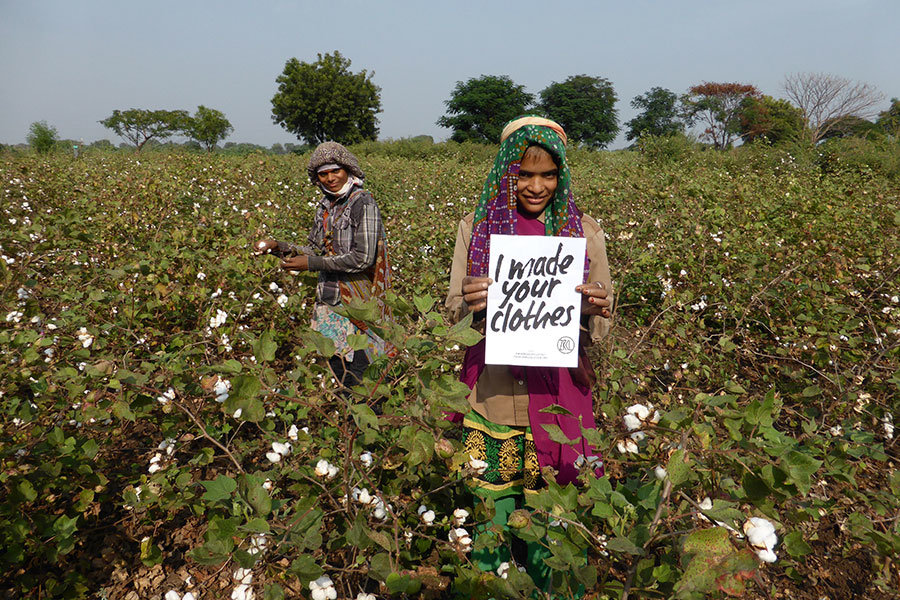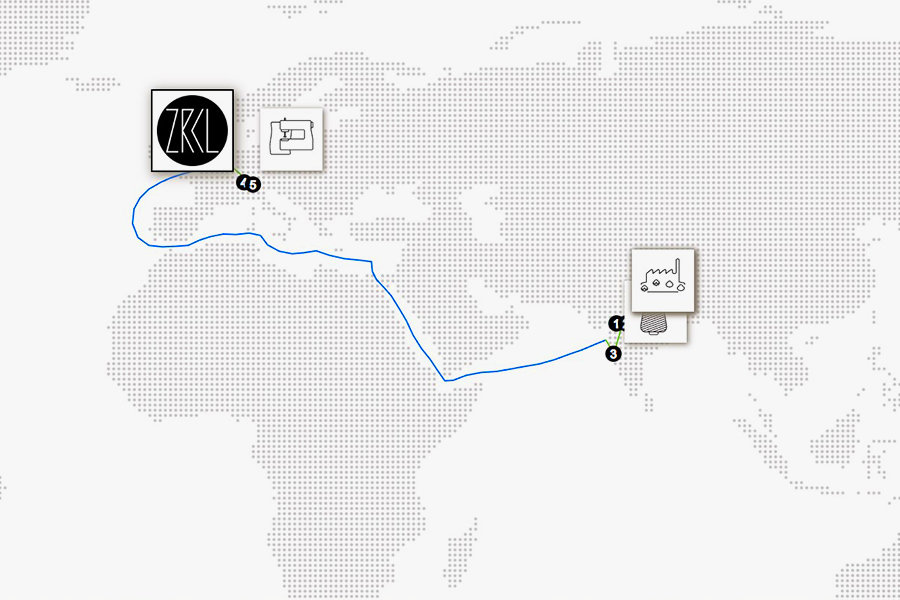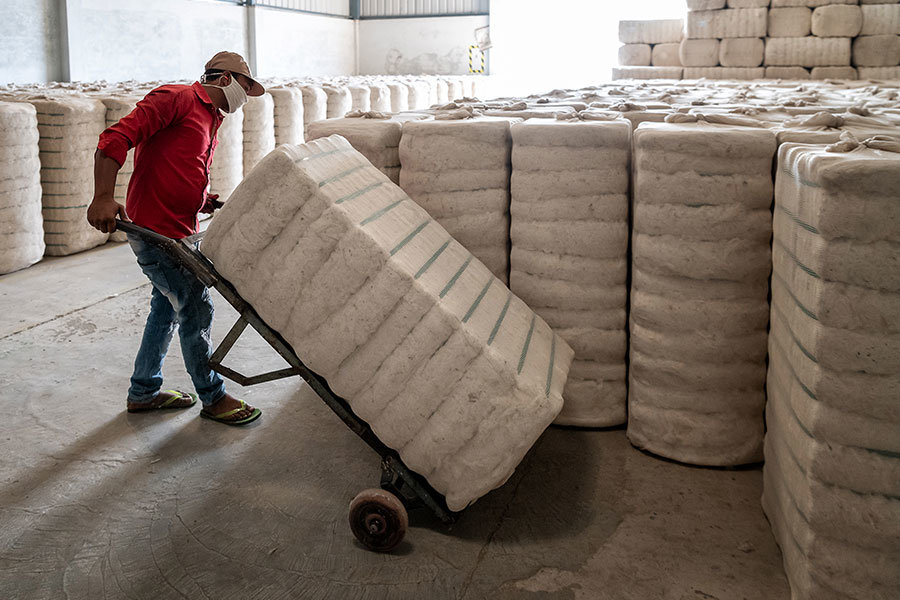Our organic cotton from Remei
Organic cotton is at the heart of WE ARE ZRCL’s collections. Because our label is based on our conviction that fashion can and must be produced ecologically, fairly and transparently. The bioRe® sustainable textiles seal of approval from the bioRe® Foundation is in line with our values and distinguishes the sustainable production of our textiles.

FAIR TRADED ORGANIC COTTON
Since our founding, we have exclusively used organic cotton for our cotton collections, which is labelled with the bioRe® Sustainable Cotton quality brand. This is produced in Indian and Tanzanian organic farms by Remei in direct and participatory collaboration with around 5000 small farmers. The farmers receive a purchase guarantee from Remei and an additional organic premium of 15% above the local market price for the organic cotton.

WHAT WE PARTICULARLY APPRECIATE:
The bioRe® Foundation, together with Remei, conducts training for the farmers on organic farming methods and pest control as well as water management or soil health. This makes the farming families independent – even of harmful and costly synthetic pesticides and fertilizers, and they can supplement cotton yields with yields from the food grown in rotation. Learn more about the organic farm Remei India here.
WHETER IT’S A T-SHIRT OR A HOODIE: YOU CAN TRACK EVERYTHING
Transparency from cultivation to sale is one of our core values at WE ARE ZRCL! Remei enables us to maintain direct contact with organic cotton farmers. This allows us to communicate with them on a regular basis, to know their current situation and, if necessary, to include them in our collection planning.

You want to know where the organic cotton for your t-shirt was grown, or where and in which company your hoodie was sewn together? You can find the traceability code on the product label of every garment, whether it’s a T-shirt, trousers or socks. Furthermore, you can enter it in the traceability tool and track all production steps at a glance. By the way, if you want to know which artist designed your garment, you’ll find it in our Artists section.
WHEN THE SEED FOR ORGANIC COTTON IS MISSING
Genetically modified seeds, which dominate cotton cultivation, are absolutely taboo for us. We can rely on our partner Remei to ensure the availability of GM-free seeds for cooperating farmers in India and Tanzania. In India, GMO-free seeds are practically no longer available, and Remei India therefore breeds its own seeds for distribution to farmers, and has been conducting intensive seed research together with the bioRe® Foundation and its partners for many years.
Around 80 percent of cotton seeds are genetically modified today. In India, the world’s largest cotton producer, the proportion was as high as 94 percent in 2019, and 98 percent in the USA, the third-largest growing region. It had been hoped that the genetically modified cotton plants could ward off the dreaded bollworm and make at least some insecticides superfluous. Another genetic modification of the seeds was supposed to ensure that the cotton plants would be resistant to herbicides, while other plants would die as a result. But pests and “weeds” have also developed resistances, and so farmers now have to spray more pesticides than before. It is not the only problem: due to the proliferation of genetically modified seeds, organic farmers are finding it increasingly difficult to buy GM-free seeds.
THE ORGANIC COTTON IN WE ARE ZRCL STREETWEAR
In our products from Remei’s Indian supply chains, the energy today already comes from renewable energy sources. Unavoidable CO₂ emissions are offset together with the bioRe® Foundation through biogas plants and efficient cooking ovens in the regions where the organic cotton for our textiles is grown. Learn more about Remei’s carbon insetting here.

THIS IS HOW THE CONTROL WORKS
Our partner Remei produces for us in a sustainable and fully transparent supply chain from seed to finished textile. Every production is traceable, and the production companies involved are disclosed transparently and comprehensibly in the traceability tool. The cultivation of the raw material complies with the bioRe® Cotton Standard and is regularly inspected by authorized institutions. All production partners in industrial garment manufacturing are SA 8000 certified and are committed to improved working conditions, including wage levels, working hours and health protection for employees.
